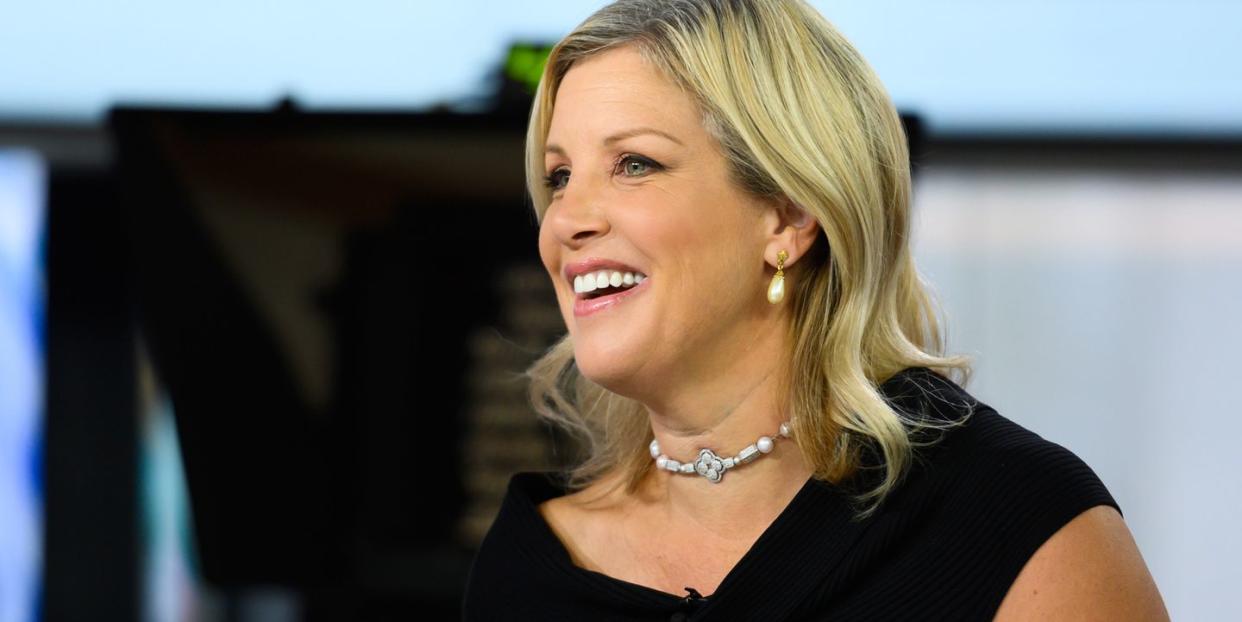NBC’s Kristen Dahlgren Almost Ignored the Breast Cancer Symptom That Led to Her Diagnosis

In a new first-person essay, NBC correspondent Kristen Dahlgren opens up about the symptom that led to her stage two breast cancer diagnosis.
Dahlgren says she almost ignored a dent in her right breast, but she had learned through a reporting assignment that many women feel an initial symptom that’s not a lump—so she got it checked out.
She is currently undergoing chemotherapy treatment and is “doing well now.”
Five months after receiving a negative mammogram result, NBC correspondent Kristen Dahlgren was diagnosed with breast cancer. In a first-person piece for Today, she recounted what took place during those months—and it all started with the discovery of an unusual dent in her right breast.
She was getting ready to meet friends on her 47th birthday. “I had never noticed it before. I wasn’t great about regular self exams,” Dahlgren wrote. “But this time I paid attention.” She knew the most common sign of breast cancer is a mass or hard lump, and she didn’t feel one. But she did notice “a thickening” beneath the dent.
At the time, Dahlgren said breast cancer was the last thing on her mind. “I’m in my 40s,” she wrote. “I’m active. I don’t have a family history of anyone getting breast cancer early.”
So she wanted to put off getting it checked—but her husband wouldn’t let her. A past reporting assignment also started to weigh on her mind: A study had found that one in six women diagnosed with breast cancer present an initial symptom that’s not a lump.
In fact, a woman she interviewed was diagnosed only after noticing a slight change in her breast’s shape. (Other non-lump symptoms of breast cancer include orange peel-like skin dimpling, irritation, breast or nipple pain, nipple retraction, discharge, color change, and swelling.)
For Dahlgren, getting an answer quickly became urgent. So she went to a hospital while on assignment in North Carolina and scheduled an ultrasound. Days later, she was diagnosed with stage two breast cancer. “If I hadn’t done that story, I might have ignored the change in my breast,” she wrote. “I might have assumed a mammogram would have picked up cancer.”
She continued: “I have since learned [mammograms] are only 87% effective and are less sensitive in women like me with dense breast tissue. I might not have gotten another mammogram for a while. I hate to admit it, but I had let years go between screenings in the past.”
After receiving her diagnosis, she reunited with a doctor she interviewed on that life-changing assignment. “If this story saved me, how many other women are out there that need this?” Dahlgren asked. “This is more common than we appreciate.”
Thank you for all of the good wishes and support. So glad I am able to share my story to help others! https://t.co/2TArdn3zKv
— Kristen Dahlgren (@kristendahlgren) December 11, 2019
Unfortunately, Dahlgren’s right. But there are many things you can do to potentially prevent breast cancer or catch it in its earliest stages, including knowing your breast density and family medical history, staying active, and eating the right foods, as well as getting regular screenings and performing self-examinations.
Dahlgren is currently undergoing chemotherapy treatment. “I am doing well now. I have amazing and optimistic doctors and more support than I ever knew,” she says. And even with a “long road ahead,” she hopes her story will inspire other women to visit their doctor when something feels off.
Like what you just read? You’ll love our magazine! Go here to subscribe. Don’t miss a thing by downloading Apple News here and following Prevention. Oh, and we’re on Instagram too.
You Might Also Like

